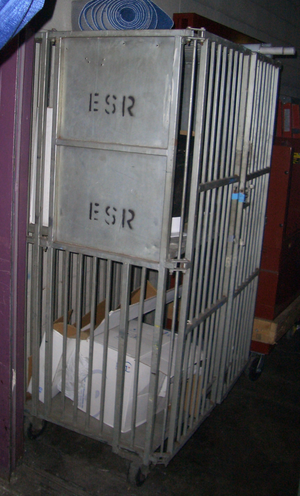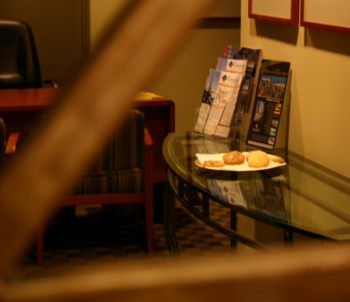A couple of weeks ago, I went to a extremely interesting talk by Niva Elkin-Koren on the limits of private ordering (i.e., contracts and licenses) in building communities around the production of free (for definition of free) creative works. She’s writing a paper which I hope to get my hands on very soon. I have every reason to believe it will be excellent.
Elkin-Koren is a law professor and one of things she did in her talk was argue that Creative Commons in particular, but also Free Software and Free Software inspired licensing in general, is using licenses and contract law (private ordering in legal jargon) in such a way that helps opens the door to all kinds of less well-intentioned uses that advocates of freedom might not be as comfortable with. If I can say, "you can give away my music but you can’t use it for commercial use," or, "you can use my software unless you violate someone’s human rights as defined by the United Nations Declaration on Human Rights", what’s to keep Adobe from saying that I can’t implement a workaround for their eBooks or keeping the DVD-CCA from saying I can’t watch a DVD without a licensed CSS or reverse engineer the protocal?
I don’t think people should be able to able to use contracts and licenses to say anything because I don’t think it is in the best interests of creating the most free works and I think Elkin-Koren agrees. I think that fiddling around or reverse engineering a piece of software should be a right that no license has any business blocking. It’s outside of the scope of what I think copyright licenses should be able to be used for.
However, as long as we live in a world where people are producing non-free creative works and believe that they have something to gain by restricting consumers’ rights, we need to face the fact that if we are using contracts in the Creative Commons or Free Software contexts to place any and all restrictions we think are in the interest of freedom, we may be opening the door to abuse.
We all know that copyleft is enabled through copyright. As a result, there is a tendency for software freedom advocates to argue for stronger copyleft by, explicitly or implicitly (and often unintentionally), arguing for stronger copyright. This is wrong. I don’t believe in peace through war and I don’t believe in free access to information through stronger copyright — as a stategic technique or as a ethically defensible strategy.
Using copyright, as it stands, as a weapon against itself is strategic position that I believe is justifiable. However we must resist the temptation to adopt an expansionist position on copyright when we think it benefits freedom because the advocates of freedom will lose more than they gain.
Elkin-Koren’s argument poses an important — and open — question to the supporters of free information in asking them to consider the extent to which their free licensing practices opens the door to an environment where private ordering allows anyone to do anything.
At the talk, SPI’s lawyer (and sometimes director of photography) Greg Pomerantz made the argument in support of Free Software licensing saying that Free Software licenses are limited in scope to cover those things that are already copyright rights. I think this is a clever way to critique the policy of license proliferation by Creative Commons and others.
In addition to arguments about the lack of freedom in some creative commons licenses, they may be strategic arguments to make that by pursuing software and content licenses that expand beyond the reach of copyright’s existing realm, advocates of freedom are doing more harm that good — that licenses should focus on things within the realm of copyright (derivative works, distribution, etc) and not things like outside like how they will be used (e.g., barring non-commercial use).
This happens to integrate quite well with more fundamental critique of Creative Commons that I have written but I’ll save that for another day.





